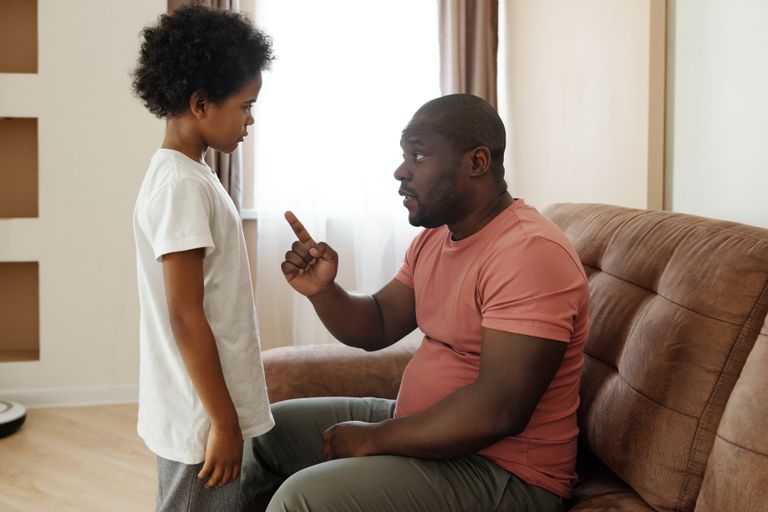The roles of a father have long been transformed and expanded from the traditional roles of a breadwinner and a disciplinarian in the family into a more diverse set of roles, which include being a caregiver and a mentor. Especially at this time when many parents have learned further to balance work and parenting duties within a single space, their homes, the stereotypes of what a father is and should be are much more refuted.

In fact, the profile of a father has changed through time, as the American Psychological Association (APA) noted. “He can be single or married; externally employed or stay-at home; gay or straight; an adoptive or step-parent; and a more than capable caregiver to children facing physical or psychological challenges,” the APA wrote on its website.
APA attributes such change to two factors, one of which is economic trends. “Two to three centuries ago, fathers’ roles were primarily to serve as breadwinners and the conveyers of moral values and religious education to their children,” the association explained. “However, with the advent of industrialization and urbanization and as factories emerged as major sources of employment, fathers became distanced from the household and their families.”
Such circumstances are coupled, however, with the changing economic role of women as more of them get employed and their financial power has increased.
“In tandem with the growing autonomy of women, related trends such as declining fertility, increasing rates of divorce and remarriage, and childbirth outside of marriage have resulted in a transition from traditional to multiple undefined roles for many fathers. Today’s fathers have started to take on roles vastly different from fathers of previous generations,” APA observed.
Alongside those economic trends, research on child development was observed to have increasingly focused on fathers in the last 20 to 30 years.
APA highlighted a study conducted by United States’ National Institute of Child Health and Human Development, which found that fathers tended to be more involved in caregiving when they worked fewer hours than other fathers; had positive psychological adjustment characteristics like high self-esteem and lower levels of depression and hostility; when mothers worked more hours than other mothers; when mothers reported greater marital intimacy; and when children were boys.
“Other research on the role of fathers suggests that the influence of father love on children’s development is as great as the influence of a mother’s love. Fatherly love helps children develop a sense of their place in the world, which helps their social, emotional and cognitive development and functioning,” the association added.
Notably, a study published in the International Journal of Scientific and Research Publications in 2018 delved into the role of Filipino fathers as caregivers. The study interviewed 16 Filipino fathers based in south-central Mindanao who served as the primary caretakers of their children while their wives were working outside the Philippines.
The authors noted from their analysis of the respondents’ interviews that in fulfilling their caregiving roles, these fathers are deeply involved in maintaining the hygiene of their children, as well as in preparing their meals, guiding them in their studies, and attending to them in their sickness — which the fathers considered as the most difficult part of their duty.
“Fathers claimed they did everything for their children. This responsibility started the moment they woke up until they retired at night,” the authors wrote. “These responsibilities covered not only the concern on their children’s activities of daily living like grooming, feeding, schooling and a lot more, but also the household tasks that were traditionally done by women in the Filipino culture.”
This diversity in fatherhood roles actually got more emphasis in the midst the coronavirus pandemic. As shared in a story published on the website of public broadcaster NPR, fathers have faced the challenge of striking a balance between work and family over the last two years.
Photo from our-team – freepik
“You basically have to shift your role from being dad, to your role being dad, teacher, caretaker, [physical education] instructor, nutritionist, because all meals are eaten at home…. But also kind of finding that sense of balance on how beautiful it was that the family was together for just about all three meals every single day,” one father based in New York was quoted as saying.
Given these enhancing of fatherhood roles, the stereotypes of dads as mere providers and babysitters who hardly help in parenting and household chores are far from the reality.
JR Santiago, founder of the Dadvocacy Community on social media, has been showcasing Filipino fathers who are breaking such stereotypes.
“In doing this advocacy, I see that more dads are breaking the stereotypes and are stepping up to become more involved parents. In the years to come, I look forward to seeing more Pinoy dads not only change the fatherhood narrative but to also help change the world, one dad at a time,” he wrote in an article on the Smart Parenting website. — Adrian Paul B. Conoza